Find Help
More Items From Ergsy search
-

Uk Buy to Let for Older Clients - Mortgage Options Tips and Criteria
Relevance: 100%
-
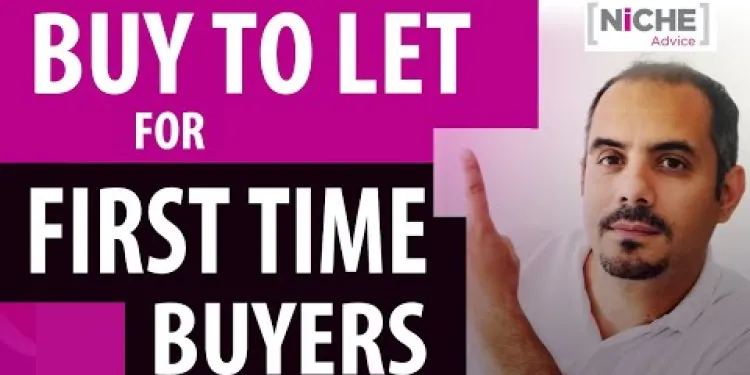
First Time Buyer Buy to Let Finance Options. Lending Criteria on Mortgage and Bridging Finance
Relevance: 66%
-
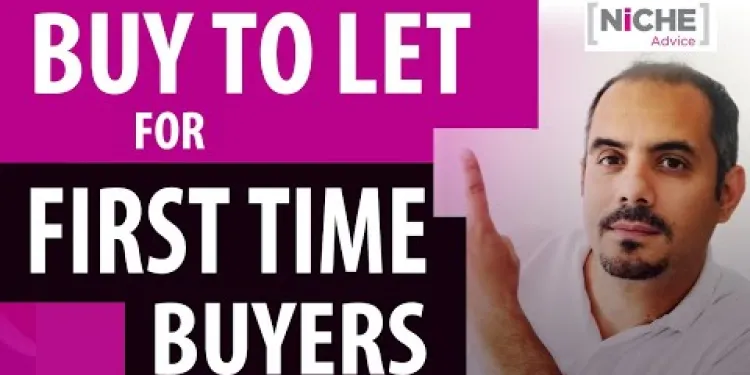
First Time Buyer Buy to Let Finance Options. Lending Criteria on Mortgage and Bridging Finance
Relevance: 54%
-
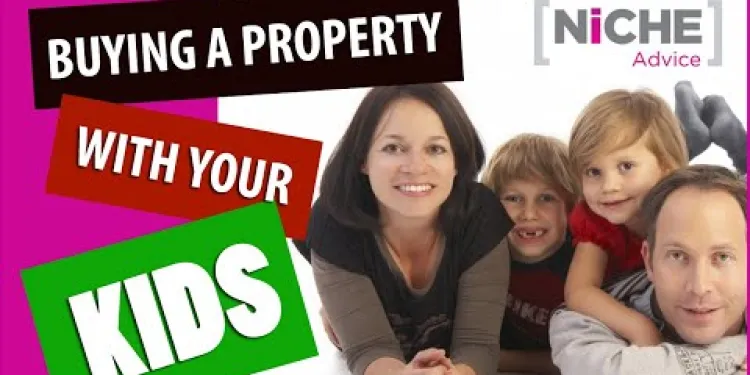
How to Buy property with your children under the age of 18 and get Buy to Let Mortgage.
Relevance: 51%
-
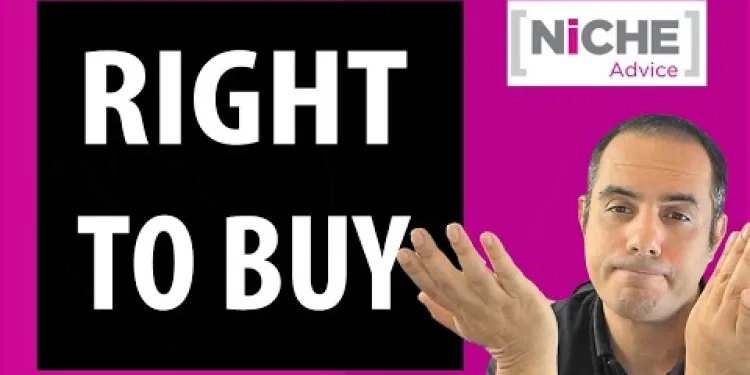
RIGHT TO BUY MORTGAGE - LET ME SAVE YOU TIME AND MONEY
Relevance: 46%
-

Can I get a Buy to Let Mortgage With My 18 Year Old Son
Relevance: 42%
-

HMO Mortgage Truths - how to get the best Finance option including Bridging Loan Criteria
Relevance: 41%
-
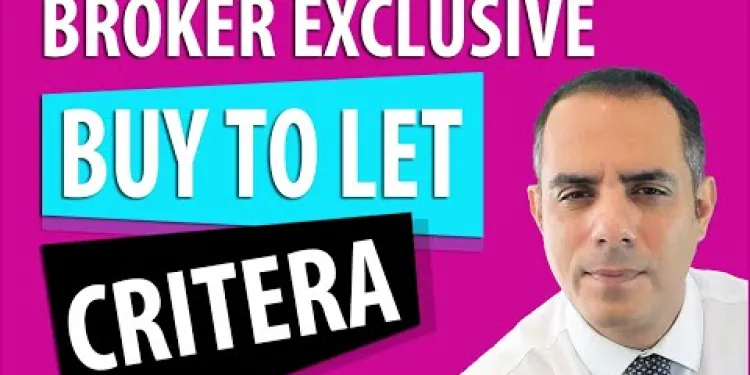
5 Broker Exclusive Buy to Let Mortgage Lenders you need to know about as a Landlord
Relevance: 40%
-
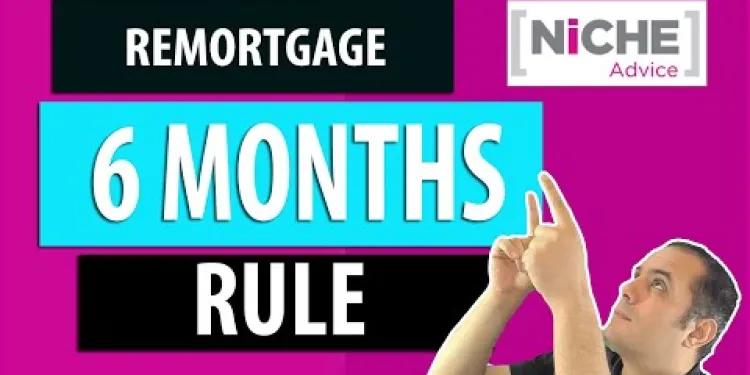
Remortgage within 6 Months on the open market value Residential or Buy to Let Properties
Relevance: 33%
-
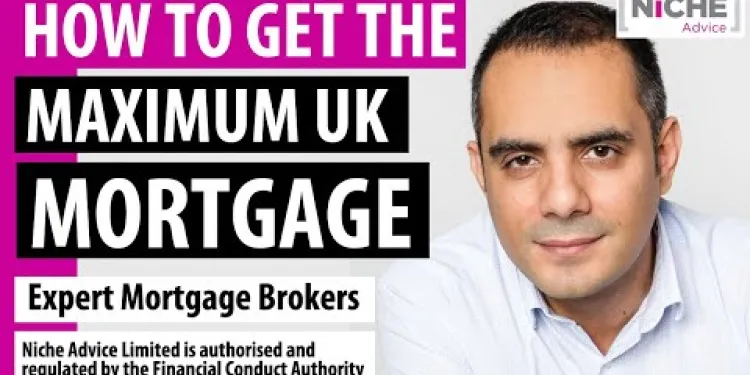
Getting the maximum mortgage in the UK
Relevance: 28%
-

The Ultimate Buy-To-Let Mortgage Breakdown
Relevance: 26%
-
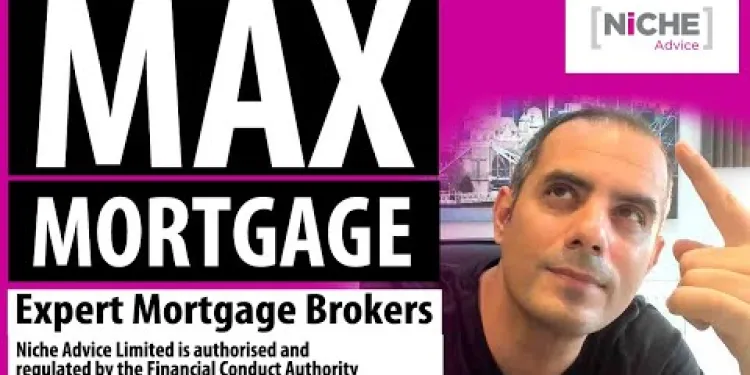
How much can I borrow for a mortgage UK - getting the Maximum Mortgage
Relevance: 25%
-

How are live-in caregivers matched with clients?
Relevance: 25%
-

If I am buying a house, who has to pay for a surveyors report?
Relevance: 24%
-
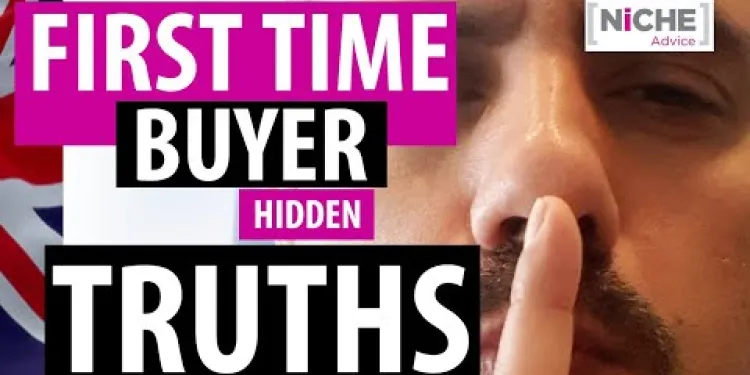
First Time Buyer UK - Own Outright vs Help to Buy vs Shared Ownership
Relevance: 24%
-
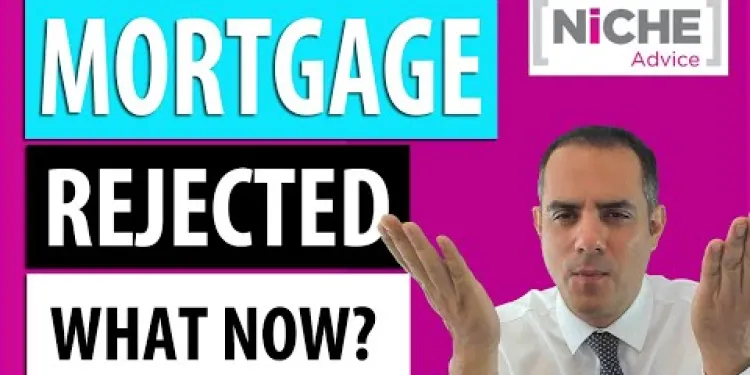
Turned down for a mortgage? Find out why and what to do
Relevance: 24%
-

Can Stamp Duty be included in a mortgage in the UK?
Relevance: 23%
-
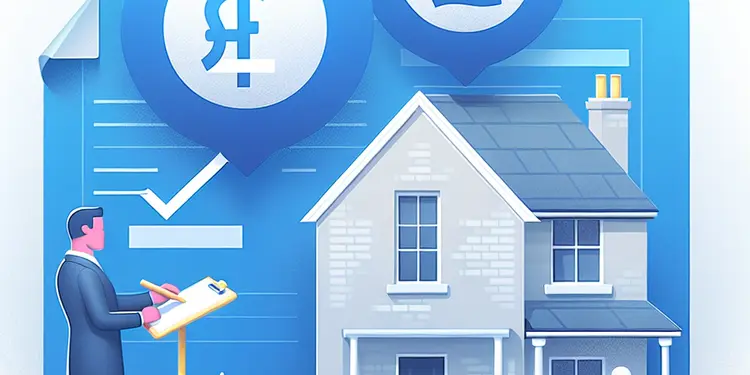
Can I use the surveyor recommended by my mortgage provider?
Relevance: 23%
-
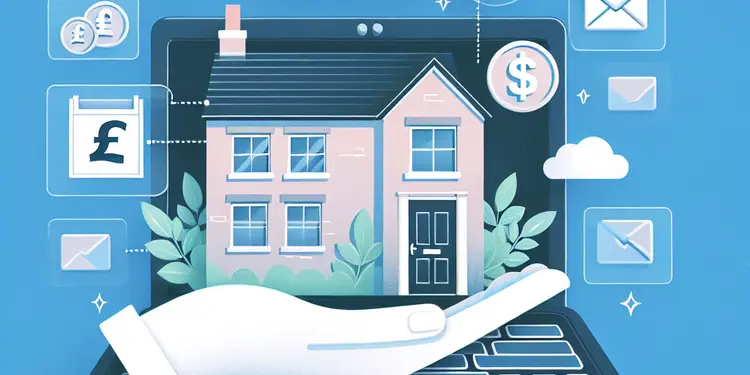
Is there assistance available for rent or mortgage payments?
Relevance: 23%
-
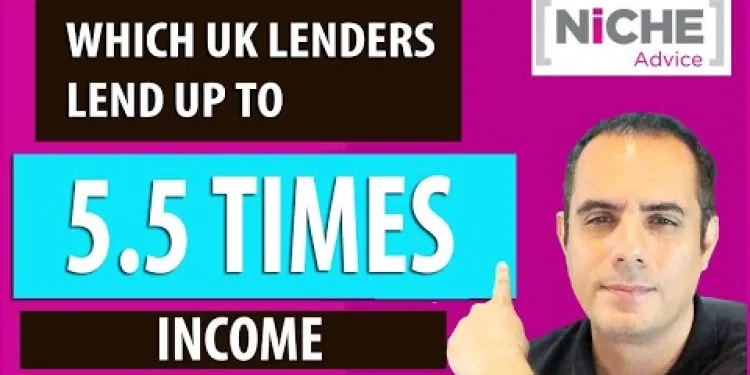
Highest Income Multiple Mortgage Lenders Revealed - Good and Bad Points
Relevance: 22%
-
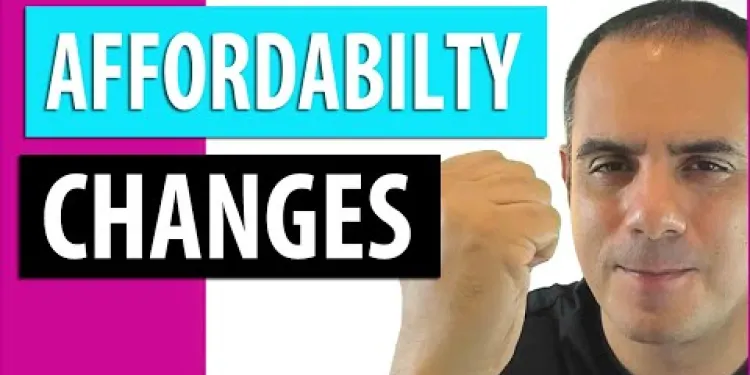
Mortgage Regulator removes the need for further affordability stress tests
Relevance: 22%
-
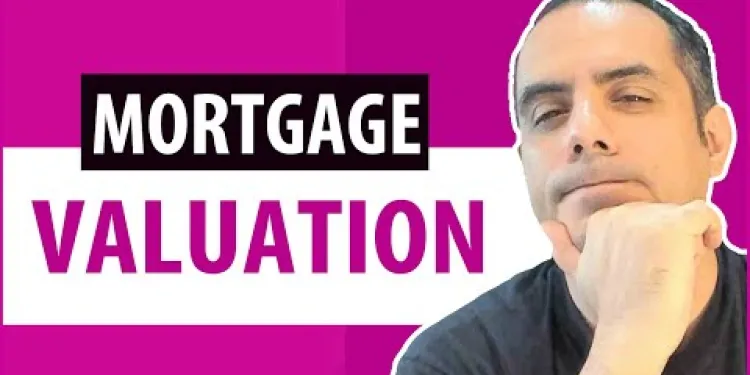
Can Mortgage lenders work from my own Survey Valuation Report?
Relevance: 22%
-
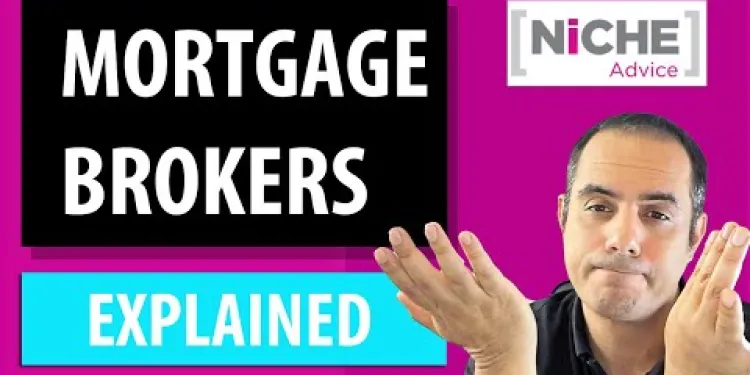
Selecting a Mortgage Broker - how they differ and what to watch out for
Relevance: 22%
-

What housing assistance options are available for seniors?
Relevance: 21%
-

Is it possible to switch my mortgage type if interest rates become unfavourable?
Relevance: 21%
-
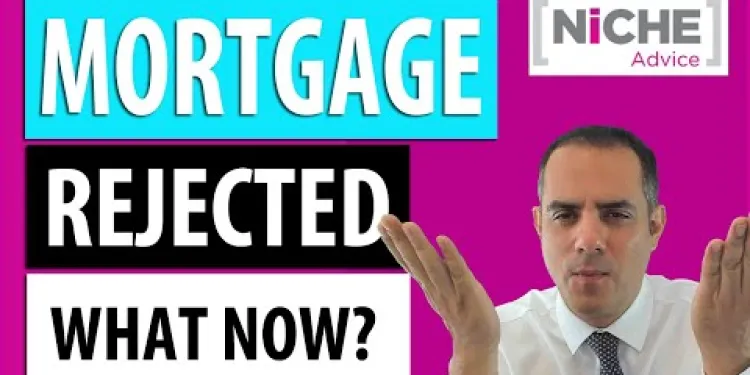
Turned down for a mortgage? Find out why and what to do
Relevance: 20%
-

Mortgage on Inherited Property - How we can help you with the finance
Relevance: 20%
-
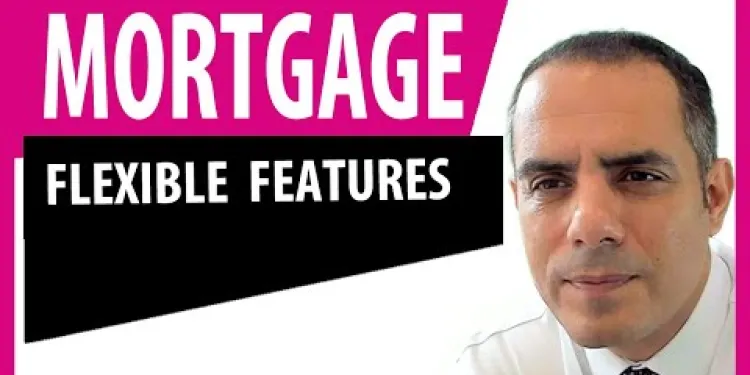
Mortgage Overpayment and Flexible Features Explained
Relevance: 20%
-
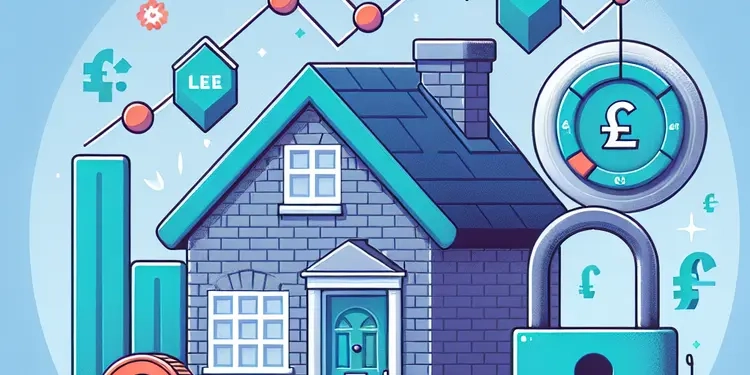
What does it mean to "Fix My Mortgage Rate"?
Relevance: 20%
-

What is an 'interest only' mortgage?
Relevance: 20%
-
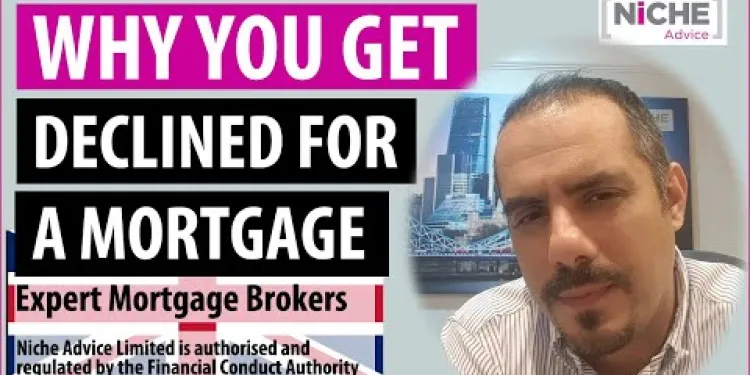
Mortgage Turned Down In The UK - Why mortgage applications are declined
Relevance: 20%
-

Leasing VS Buying a Car: Watch this before you buy a car and make the wrong choice!
Relevance: 19%
-

How do interest rate changes affect my mortgage payments?
Relevance: 19%
-

What should I do if I can't afford my mortgage payments due to rising interest rates?
Relevance: 19%
-

Is it possible to buy additional pension benefits as a firefighter?
Relevance: 19%
-

Will the surveyor's report affect the mortgage offer?
Relevance: 19%
-

Are there specific eligibility criteria for PCP or HP agreements?
Relevance: 19%
-
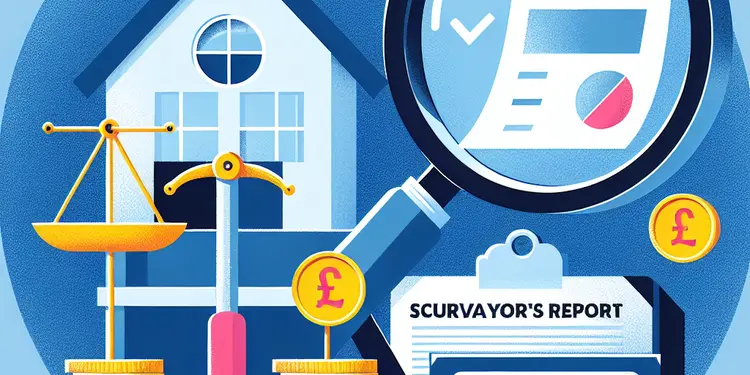
Is a mortgage valuation the same as a surveyor's report?
Relevance: 19%
-

Will my fixed-rate mortgage payments change with interest rate fluctuations?
Relevance: 19%
-

Can I buy travel insurance after booking my trip?
Relevance: 18%
Understanding Buy to Let for Older Clients in the UK: Mortgage Options, Tips, and Criteria
Introduction to Buy to Let Mortgages for Older Clients
Buy to let properties can be an excellent investment option for older clients in the UK looking to generate additional income or diversify their retirement portfolio. However, securing a buy to let mortgage later in life may require navigating specific challenges. Understanding the available mortgage options, criteria, and strategies can help older clients make informed decisions about their investments.
Mortgage Options for Older Buy to Let Investors
Older clients in the UK still have various buy to let mortgage options available, though institutions might impose stricter criteria based on age. Some lenders offer mortgages with maximum age limits at application or by the end of the mortgage term, often ranging from 70 to 90 years. Interest-only mortgages, where clients pay only the interest on the loan, are also popular among buy to let investors, allowing them to maximize rental yield.
Key Criteria Lenders Consider
Lenders will assess multiple criteria when evaluating an older client's buy to let mortgage application. Age is a critical factor, with many lenders imposing upper limits. In addition, they consider the client’s income, existing debts, and rental potential of the property. A sound rental income—usually 125% to 145% of the mortgage repayments—is essential. Furthermore, a healthy credit score and a robust deposit, typically at least 25%, increase the likelihood of approval.
Tips for Securing a Buy to Let Mortgage
Older clients should take proactive steps to improve their chances of securing a buy to let mortgage. First, maintaining a good credit score and reducing existing debt can be beneficial. Demonstrating a viable exit strategy, such as selling the property, refinancing, or using additional retirement income, is also crucial. Older clients should consider working with a mortgage broker who specializes in buy to let solutions, as they can navigate various lenders and find suitable options tailored to the client's age and circumstances.
Conclusion
While older UK clients may face certain challenges when pursuing a buy to let mortgage, understanding the available options and lender criteria can lead to successful outcomes. By being informed and strategic, older investors can secure a mortgage that supports their financial goals in retirement, ensuring a steady income stream through property investment.
Understanding Buy to Let for Older Clients in the UK: Mortgage Options, Tips, and Criteria
Introduction to Buy to Let Mortgages for Older Clients
Older people in the UK can invest in buy to let properties to earn extra money. This can help during retirement. Getting a buy to let mortgage when you are older can be tricky. It is important to know about your options and what lenders look for.
Mortgage Options for Older Buy to Let Investors
Older people can still get buy to let mortgages in the UK. Some banks have age limits, like 70 to 90 years old, either when you apply or when the mortgage term ends. Interest-only mortgages can be a good choice. With these, you pay only the interest, which can help you earn more from renting.
Key Criteria Lenders Consider
Banks look at several things when you apply for a buy to let mortgage. Age is important—they often have upper age limits. They also look at your income, current debts, and how much rent the property can earn. You usually need rental income that is about 125% to 145% of the mortgage payments. A good credit score and a large down payment, usually at least 25%, are also helpful.
Tips for Securing a Buy to Let Mortgage
Here are some tips for older people to get a buy to let mortgage: - Keep a good credit score and try to pay off debts. - Have a plan for paying back the mortgage, like selling the property or using other retirement money. - Talk to a mortgage broker who knows about buy to let mortgages. They can help you find good options.
Conclusion
Older people in the UK can face challenges when trying to get a buy to let mortgage. But by knowing what options are available and what banks want, they can find success. This way, they can invest in property and earn money during retirement.
Frequently Asked Questions
What is a buy-to-let mortgage?
A buy-to-let mortgage is a type of loan specifically designed for property purchases intended for rental purposes rather than owner-occupancy. They typically require a larger deposit and have different criteria than standard residential mortgages.
Are there age limits for buy-to-let mortgages in the UK?
Yes, many lenders have upper age limits for buy-to-let mortgages, which can range from 70 to 85 at the time of loan maturity. However, some lenders offer more flexible terms for older borrowers.
Can I get a buy-to-let mortgage if I am over 60?
Yes, many lenders offer buy-to-let mortgages for borrowers over 60. Some might require a strong rental income and a good credit history.
What is the typical deposit required for a buy-to-let mortgage?
A typical deposit for a buy-to-let mortgage in the UK is around 25% of the property's value, though it can vary from 20% to 40% depending on the lender's criteria and the borrower's circumstances.
How does rental income impact buy-to-let mortgage approval?
Lenders generally assess the rental income potential of the property as part of their affordability criteria. The rental income usually needs to cover 125% to 145% of the mortgage payment.
Are interest rates higher for buy-to-let mortgages?
Yes, interest rates on buy-to-let mortgages are typically higher than residential mortgages due to the additional risk landlords represent to lenders.
Can pension income be considered for buy-to-let mortgages?
Yes, many lenders will consider pension income as part of the affordability assessment for buy-to-let mortgages, especially for older clients.
What fees are associated with buy-to-let mortgages?
Fees may include arrangement fees, valuation fees, legal fees, and early repayment charges. It's important to compare these as part of the mortgage deal.
How can older clients manage the risk of fluctuating rental markets?
Older clients can mitigate risks by having a diverse rental property portfolio, obtaining landlord insurance, and maintaining a financial buffer for unexpected costs or vacancy periods.
Are there specific mortgage products for older buy-to-let investors?
Yes, some lenders offer products with longer loan terms, interest-only options, or lifetime mortgages tailored for older buy-to-let investors.
How important is a credit score in obtaining a buy-to-let mortgage?
A good credit score is important as it influences the interest rate, deposit size, and approval chances of the mortgage. Lenders prefer to see a history of reliable borrowing and repayment.
Can I switch from a residential mortgage to a buy-to-let mortgage?
Yes, you can remortgage your property onto a buy-to-let mortgage if you plan to rent it out. Consult with your lender and obtain the necessary permissions.
What is an interest-only buy-to-let mortgage?
An interest-only mortgage allows the borrower to pay only the interest on the loan each month. The capital remains unpaid until the end of the mortgage term, making it popular for buy-to-let prospects aiming to maximize short-term cash flow.
Can older investors use equity from their current home for a buy-to-let purchase?
Yes, older investors can use a remortgage to release equity from their primary residence to fund a buy-to-let purchase. Equity release schemes also offer potential options for financing.
What are some tax considerations for buy-to-let landlords in the UK?
Landlords must pay income tax on rental profits, stamp duty, and capital gains tax on profit from property sales. Recent changes have also restricted mortgage interest tax relief, and it's crucial to plan accordingly.
What is a buy-to-let mortgage?
A buy-to-let mortgage is when you get a loan to buy a house or flat. You do this so you can rent it to other people.
Here are some helpful tips:
- Use pictures to help understand what buy-to-let means.
- Ask someone to explain words that are hard to understand.
- Use a dictionary for new words.
- Break down sentences into smaller parts.
A buy-to-let mortgage is a special kind of loan. It is for buying a house or flat that you want to rent out to other people. You won't live there yourself. You usually need more money upfront to get this kind of loan, and there are different rules than for a normal home loan where you plan to live in the house.
How old do you have to be to get a buy-to-let mortgage in the UK?
Yes, many banks have age limits for buy-to-let loans. This means you must pay it back by age 70 to 85. Some banks are more flexible and may lend to older people.
Can I get a buy-to-let mortgage if I am over 60?
If you are over 60 and want to get a buy-to-let mortgage, you might be wondering if it's possible. Here is some helpful information:
- Age: Some banks do give mortgages to people over 60. It depends on the bank's rules.
- Income: You might need to show you have enough money to pay the mortgage.
- Plan: Think about how long you want to keep the property. Some banks may have age limits.
Here are some tips to help you understand better:
- Ask someone you trust to explain more if it’s difficult.
- Use tools like a mortgage calculator to see costs.
- Write down any questions to ask the bank.
Yes, many banks let people over 60 get mortgages for buying a place to rent out. They might need to see that you can earn good money from rent and have a good history of paying back money.
How much money do I need to start a buy-to-let mortgage?
When you buy a home to rent out, you need to pay some money first. This is called a deposit. In the UK, the deposit is often about 25% of the home's price. But sometimes, you might need to pay between 20% and 40%. It depends on what the bank wants and your own situation.
If you find this hard or need help, you can use a calculator to see how much money you'll need. You can also ask someone you trust to explain it to you.
How does money from renting a home affect getting a mortgage for buy-to-let?
If you rent out a house, you can earn money. This money helps banks see if you can pay for a special loan called a buy-to-let mortgage. This loan is for people who buy houses to rent to others.
Banks look at how much rent you earn to decide if they should give you this loan. They want to make sure the rent money is enough to pay back the loan.
Here are some tips to help you:
- Keep track of how much rent you get each month.
- Use a calculator tool to see if the rent covers the loan payments.
- Ask a financial advisor if you need help understanding the loan.
Lenders look at how much money a property can make from rent. They do this to see if you can afford a loan. The rent money should be enough to pay 125% to 145% of the loan payment.
Do buy-to-let mortgages have higher interest rates?
When you borrow money to buy a rental home, it is called a buy-to-let mortgage. Often, the interest rates for these mortgages are higher. This means you pay more money back in the end.
Support Tips:
- Use a calculator to help you understand numbers.
- Ask someone you trust if you find something hard to understand.
- Write down new words to learn what they mean.
Yes, interest rates for buy-to-let mortgages are usually higher than for regular home loans. This is because banks think landlords are a bigger risk.
Can money from a pension be used for buy-to-let loans?
If you get money from a pension, can you use it to get a loan to buy a house and rent it out?
Some banks might let you do this. It's best to ask the bank.
You can also talk to a money expert for help.
Yes, many banks will look at your pension money to see if you can afford a buy-to-let mortgage. This is especially true for older people.
What costs come with buy-to-let mortgages?
If you want to rent out a house, you might get a special kind of loan called a buy-to-let mortgage. Here are some costs you should know about:
- Arrangement Fee: This is what you pay the bank for setting up your mortgage.
- Valuation Fee: You pay this for someone to check how much the house is worth.
- Legal Fees: You need a lawyer to help with the legal paperwork, and you have to pay them.
- Stamp Duty: This is a tax you pay to the government when you buy a house.
You can use tools like a calculator to help you understand the costs better. Don't forget to ask someone you trust if you need help!
You might need to pay some fees when you get a mortgage. These fees can be for setting up the mortgage, checking the value of the home, paying the lawyer, and paying if you want to pay off the loan early. Make sure you look at all these fees when choosing a mortgage.
How can older people handle changes in rent prices?
If you are older and renting a home, sometimes rent prices can change a lot. Here are some simple ways to help you deal with rent price changes:
- Talk to your landlord: If you know rent might go up, ask your landlord if they can keep it the same.
- Budget wisely: Save some money each month if you can, so you are ready if rent goes up.
- Use housing advice services: There are places that can give you advice on housing if you're worried. They can help you understand what to do.
- Look for support: Ask family or friends for help if you find it hard to manage your rent. They might have good ideas or know someone who can help.
Remember, it’s okay to ask for help. There are tools and people who can give you support if you need it.
Older people can make renting houses safer. They can do this by having different kinds of houses, getting insurance for landlords, and saving extra money for surprise costs or when houses are empty.
Can older people get special mortgages for buying rental homes?
Yes, some banks give out loans that last for a long time. Some loans let you pay only the interest at the start. There are also special loans for older people who want to rent out property all their life.
How important is a credit score for getting a buy-to-let mortgage?
A credit score is a number. It shows how good you are at paying back money.
If you want a buy-to-let mortgage, a good credit score helps. It shows the bank you can pay back the loan.
With a good credit score, it is easier to get a mortgage.
Here are some tips to help you:
- Pay bills on time. This helps your credit score.
- Check your credit report. Make sure it is correct.
- Use money tools and apps. They can help you manage your money.
A good credit score helps you get a loan for a house. It affects how much money you need to pay upfront and how likely you are to get the loan. Lenders like to see that you have borrowed money before and paid it back on time.
Can I change my home loan to a renting loan?
Yes, you can change your home loan to a buy-to-let loan if you want to rent out your home. Talk to your bank and get the right permissions.
What is an interest-only buy-to-let mortgage?
A mortgage is money you borrow to buy a house.
An interest-only mortgage means you only pay the interest on the money you borrowed at first. You don’t pay back the main loan until later.
A buy-to-let mortgage is for buying a house that you will rent out to someone else.
So, an interest-only buy-to-let mortgage means you borrow money to buy a house to rent out, and at first, you just pay the interest. Later, you pay back the full loan amount.
To understand better, you can:
- Use a calculator to see how interest works.
- Ask someone to explain it to you in person.
An interest-only mortgage is a type of loan. Each month, you only pay the interest, not the whole loan. You pay the rest of the loan at the end. This kind of loan is popular for people who want to rent out a house and keep extra money each month.
Here are some tips to help understand this better: - Use a calculator to see how much you'll pay each month. - Ask someone to explain any tricky words. - Draw a picture to show how the loan works. Tools like text-to-speech software can be helpful. It can read the text out loud for you.Can older people use money from their home to buy another house to rent out?
Yes, older people can use a remortgage to get money from their main home. They can use this money to buy a property to rent out. There are also special plans called equity release that can help get money like this.
What do UK landlords need to know about taxes?
If you rent out property in the UK, you must pay tax on the money you earn. Here are some things to remember:
- You have to tell the government about your rental income.
- Keep records of all the money you earn and spend for your rental properties.
- You can claim some costs, like repairs, against your tax.
- The amount of tax you pay depends on how much money you make.
Ask a tax advisor if you need help. They can make things simpler for you.
If you own a home and rent it out, you need to pay certain taxes. These taxes include:
- **Income Tax**: This is a tax on the money you earn from renting the home.
- **Stamp Duty**: This is a tax you pay when you buy a home.
- **Capital Gains Tax**: This is a tax on the profit you make when you sell the home.
Recently, the rules about how much tax you can claim back on the money you borrow (mortgage) have changed. It's important to plan for these changes.
To make things easier, you can use tools or ask for help from a tax advisor.
Useful Links
This website offers general information and is not a substitute for professional advice.
Always seek guidance from qualified professionals.
If you have any medical concerns or need urgent help, contact a healthcare professional or emergency services immediately.
Some of this content was generated with AI assistance. We’ve done our best to keep it accurate, helpful, and human-friendly.
- Ergsy carfully checks the information in the videos we provide here.
- Videos shown by Youtube after a video has completed, have NOT been reviewed by ERGSY.
- To view, click the arrow in centre of video.
- Most of the videos you find here will have subtitles and/or closed captions available.
- You may need to turn these on, and choose your preferred language.
- Go to the video you'd like to watch.
- If closed captions (CC) are available, settings will be visible on the bottom right of the video player.
- To turn on Captions, click settings .
- To turn off Captions, click settings again.
More Items From Ergsy search
-

Uk Buy to Let for Older Clients - Mortgage Options Tips and Criteria
Relevance: 100%
-

First Time Buyer Buy to Let Finance Options. Lending Criteria on Mortgage and Bridging Finance
Relevance: 66%
-

First Time Buyer Buy to Let Finance Options. Lending Criteria on Mortgage and Bridging Finance
Relevance: 54%
-

How to Buy property with your children under the age of 18 and get Buy to Let Mortgage.
Relevance: 51%
-

RIGHT TO BUY MORTGAGE - LET ME SAVE YOU TIME AND MONEY
Relevance: 46%
-

Can I get a Buy to Let Mortgage With My 18 Year Old Son
Relevance: 42%
-

HMO Mortgage Truths - how to get the best Finance option including Bridging Loan Criteria
Relevance: 41%
-

5 Broker Exclusive Buy to Let Mortgage Lenders you need to know about as a Landlord
Relevance: 40%
-

Remortgage within 6 Months on the open market value Residential or Buy to Let Properties
Relevance: 33%
-

Getting the maximum mortgage in the UK
Relevance: 28%
-

The Ultimate Buy-To-Let Mortgage Breakdown
Relevance: 26%
-

How much can I borrow for a mortgage UK - getting the Maximum Mortgage
Relevance: 25%
-

How are live-in caregivers matched with clients?
Relevance: 25%
-

If I am buying a house, who has to pay for a surveyors report?
Relevance: 24%
-

First Time Buyer UK - Own Outright vs Help to Buy vs Shared Ownership
Relevance: 24%
-

Turned down for a mortgage? Find out why and what to do
Relevance: 24%
-

Can Stamp Duty be included in a mortgage in the UK?
Relevance: 23%
-

Can I use the surveyor recommended by my mortgage provider?
Relevance: 23%
-

Is there assistance available for rent or mortgage payments?
Relevance: 23%
-

Highest Income Multiple Mortgage Lenders Revealed - Good and Bad Points
Relevance: 22%
-

Mortgage Regulator removes the need for further affordability stress tests
Relevance: 22%
-

Can Mortgage lenders work from my own Survey Valuation Report?
Relevance: 22%
-

Selecting a Mortgage Broker - how they differ and what to watch out for
Relevance: 22%
-

What housing assistance options are available for seniors?
Relevance: 21%
-

Is it possible to switch my mortgage type if interest rates become unfavourable?
Relevance: 21%
-

Turned down for a mortgage? Find out why and what to do
Relevance: 20%
-

Mortgage on Inherited Property - How we can help you with the finance
Relevance: 20%
-

Mortgage Overpayment and Flexible Features Explained
Relevance: 20%
-

What does it mean to "Fix My Mortgage Rate"?
Relevance: 20%
-

What is an 'interest only' mortgage?
Relevance: 20%
-

Mortgage Turned Down In The UK - Why mortgage applications are declined
Relevance: 20%
-

Leasing VS Buying a Car: Watch this before you buy a car and make the wrong choice!
Relevance: 19%
-

How do interest rate changes affect my mortgage payments?
Relevance: 19%
-

What should I do if I can't afford my mortgage payments due to rising interest rates?
Relevance: 19%
-

Is it possible to buy additional pension benefits as a firefighter?
Relevance: 19%
-

Will the surveyor's report affect the mortgage offer?
Relevance: 19%
-

Are there specific eligibility criteria for PCP or HP agreements?
Relevance: 19%
-

Is a mortgage valuation the same as a surveyor's report?
Relevance: 19%
-

Will my fixed-rate mortgage payments change with interest rate fluctuations?
Relevance: 19%
-

Can I buy travel insurance after booking my trip?
Relevance: 18%


